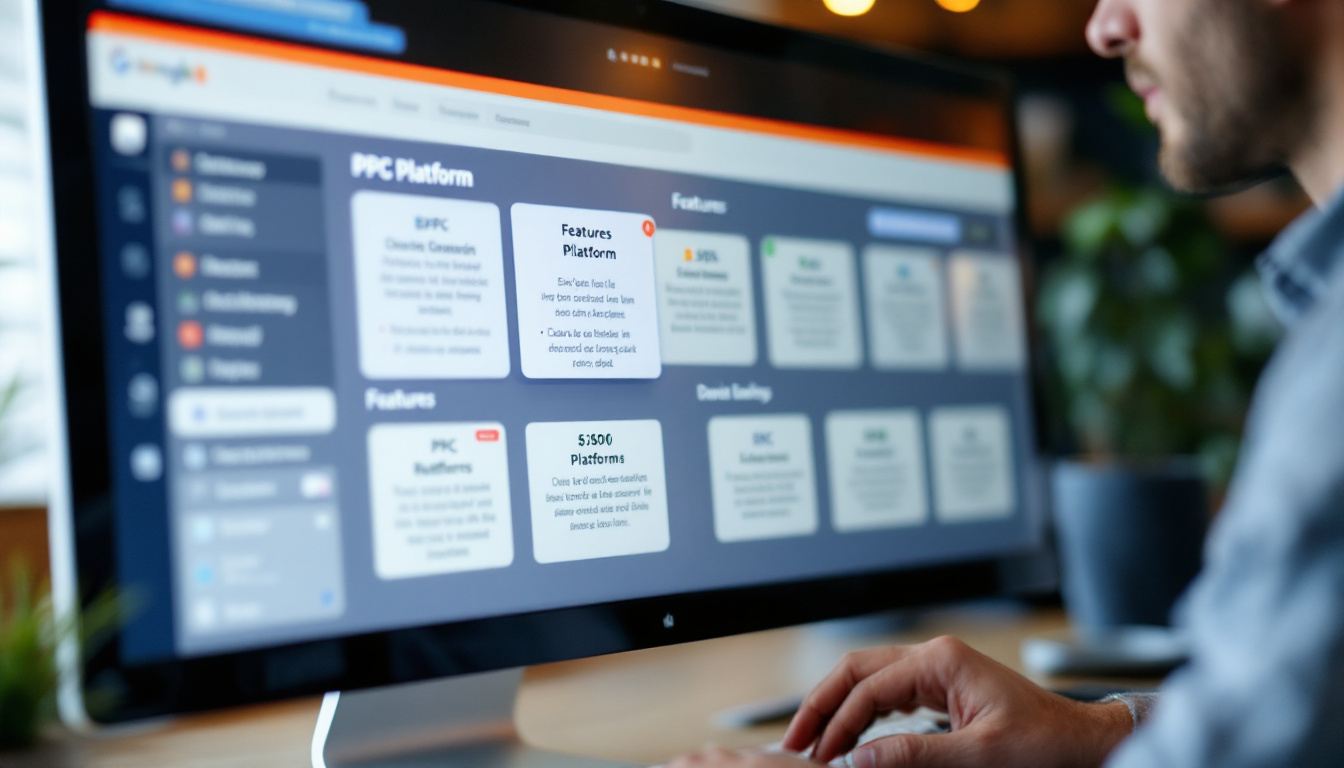Top PPC FAQs Answered for Pittsburgh, PA Businesses

PPC, or Pay-Per-Click advertising, has become an essential aspect of online marketing for businesses in Pittsburgh, Pennsylvania. As more companies look to enhance their online presence, it's natural for them to have questions regarding this powerful advertising method. This article will address key questions surrounding PPC, providing insights to help local businesses make informed decisions.
What is PPC and how does it work?
PPC is a digital advertising model that allows advertisers to bid for ad placements on various online platforms. When a user clicks on an ad, the advertiser is charged a fee, hence the name "pay-per-click." This can be an effective way for businesses to attract customers while managing their marketing budget. PPC advertising is particularly advantageous for small to medium-sized businesses, as it provides a level playing field where they can compete with larger companies without needing a massive marketing budget. The immediacy of PPC also allows businesses to see results quickly, making it a popular choice for time-sensitive promotions or product launches.
The mechanics of PPC involve selecting relevant keywords related to a business's products or services. When users search for these keywords, the ads can appear in search engine results or on websites that are part of an ad network. Advertisers can set daily budgets and monitor performance to ensure they’re maximizing their return on investment (ROI). Additionally, platforms like Google Ads offer sophisticated targeting options, enabling advertisers to reach specific demographics, locations, and even times of day, ensuring that their ads are seen by the most relevant audience possible.
Key Components of PPC Advertising
Understanding the different components of PPC advertising is crucial for businesses looking to succeed. Here are some foundational elements:
- Keywords: The foundation of any PPC campaign lies in the selection of relevant keywords that potential customers might use to find a business’s services. Conducting thorough keyword research can uncover high-traffic terms as well as long-tail keywords that may have less competition but can lead to higher conversion rates.
- Ad Copy: The text or visuals used in the advertisement should be compelling and resonate with the target audience. Crafting a strong value proposition and including a sense of urgency can significantly enhance click-through rates. A/B testing different versions of ad copy can also provide insights into what messaging works best for your audience.
- Landing Pages: The web pages where users land after clicking on an ad must provide valuable content and a clear call-to-action. Optimizing landing pages for speed and mobile responsiveness is essential, as a seamless user experience can drastically reduce bounce rates and improve conversion rates. Additionally, including testimonials or trust signals can further enhance credibility and encourage users to take action.
Why is PPC important for local businesses?
PPC offers distinctive advantages for local businesses in Pittsburgh looking to gain visibility. Unlike traditional advertising, PPC enables businesses to precisely target their audience, ensuring that their marketing dollars are spent effectively.
Local search is increasingly important, as more consumers use their smartphones to look for nearby products and services. Research indicates that PPC ads are often displayed at the top of search engine results, making them highly visible to local customers actively looking for businesses in their area. This immediacy not only drives traffic but also enhances brand recognition, as consumers frequently associate the top listings with credibility and authority.
Benefits of PPC for Local Businesses
Choosing PPC advertising can bring several benefits to local businesses:
- Immediate Visibility: Unlike SEO, which can take time to show results, PPC can put a business on the first page of search results almost instantly.
- Targeted Advertising: Businesses can target specific demographics, locations, and even interests, allowing for more relevant connections with potential customers.
- Cost Control: Companies can establish budgets that fit their financial capabilities, allowing them to allocate resources efficiently.
Moreover, PPC campaigns can be finely tuned and adjusted based on performance metrics, allowing businesses to optimize their strategies in real time. This flexibility means that if a particular ad isn't performing well, adjustments can be made to improve its effectiveness without the lengthy process associated with traditional marketing methods. Additionally, local businesses can leverage seasonal trends or events in Pittsburgh to tailor their ads, ensuring they resonate with the community and drive timely traffic.
Another significant advantage of PPC is the ability to track and analyze data effectively. Local businesses can gain insights into customer behavior, such as which keywords are driving clicks and conversions. This data not only helps in refining current campaigns but also aids in future planning, allowing businesses to stay ahead of competitors. By understanding what works and what doesn't, local businesses can make informed decisions that enhance their overall marketing strategy, ultimately leading to increased foot traffic and sales.
How to select the best PPC platform?
Choosing the right PPC platform is vital for the success of any campaign. There are several options available, including Google Ads, Facebook Ads, Bing Ads, and LinkedIn Ads, each catering to different audiences and marketing strategies.

When selecting a platform, businesses should consider their target market and where it is most active. For instance, Google Ads is often ideal for reaching customers who are actively searching for specific products or services, while Facebook Ads may be more suitable for brand awareness and engagement.
Factors to Consider
Here are some critical factors local businesses should evaluate when selecting a PPC platform:
- Target Audience: Identify which platforms your audience uses frequently.
- Advertising Goals: Determine whether the aim is brand awareness, lead generation, or direct sales.
- Budget: Different platforms have varying costs associated with ad placements; ensure you choose one that fits your budget constraints.
Another important aspect to consider is the type of ad formats available on each platform. For example, Google Ads offers search and display ads, which can be beneficial for capturing users' attention at different stages of the buying journey. On the other hand, platforms like Instagram and Pinterest provide visually appealing ad formats that can enhance engagement through stunning imagery and videos, making them ideal for brands in the fashion, beauty, or lifestyle sectors. Understanding the strengths of each platform can help in crafting a more effective advertising strategy.
Additionally, businesses should also take into account the analytics and tracking capabilities offered by each PPC platform. Robust analytics tools allow marketers to monitor campaign performance in real-time, enabling them to make data-driven decisions and optimize their ads for better results. Features such as conversion tracking, A/B testing, and audience insights can provide valuable information that helps refine targeting and improve overall campaign effectiveness. By leveraging these tools, businesses can ensure they are maximizing their return on investment and achieving their advertising goals efficiently.
What are the costs associated with PPC?
The costs of PPC advertising can vary widely based on multiple factors, including the chosen platform, industry competition, and keyword selection. Generally, costs are measured through two primary metrics: Cost Per Click (CPC) and Cost Per Acquisition (CPA).
CPC refers to the amount paid for each click on an advertisement while CPA measures the cost required to acquire a customer. Understanding these metrics can help businesses assess their ROI and adjust their bidding strategies accordingly.
Cost Considerations
Before embarking on a PPC campaign, businesses should consider the following costs:
- Keyword Bids: More competitive keywords often require higher bids.
- Management Fees: Hiring a professional or agency to manage campaigns may incur additional costs.
- Ad Spend: Businesses need to allocate a monthly budget specifically for ad placements.
In addition to these primary costs, businesses should also be aware of the potential expenses related to ad creative and testing. Crafting compelling ad copy and designing eye-catching visuals can require investment in graphic design or copywriting services. Moreover, A/B testing different versions of ads to determine which performs best can lead to increased costs, but it is a crucial step in optimizing ad performance and maximizing ROI.
Another important consideration is the cost of landing page optimization. The effectiveness of PPC campaigns is not solely dependent on the ads themselves; the landing pages that users are directed to play a significant role in conversion rates. Investing in user-friendly design, fast loading times, and persuasive content can enhance the likelihood of converting clicks into actual sales, thereby impacting the overall cost-effectiveness of the PPC strategy.
How to measure the success of your PPC campaigns?
Measuring the success of PPC campaigns is essential to determine effectiveness and make necessary adjustments for improved results. Several key performance indicators (KPIs) can help track performance:

Common KPIs include Click-Through Rate (CTR), conversion rate, Quality Score, and return on ad spend (ROAS). Analyzing these metrics can highlight areas of success as well as opportunities for improvement, enabling businesses to optimize their PPC strategies over time.
Tools for Measurement
To effectively measure PPC campaign success, businesses can utilize various tools, including:
- Google Analytics: Allows users to track website traffic and conversions resulting from PPC ads.
- Google Ads Dashboard: Provides detailed insights into ad performance metrics.
- Third-Party Analytics Tools: Solutions like SEMrush or Ahrefs can offer comprehensive analysis and reporting features.
Ultimately, understanding how to measure success will lead to more informed decision-making and ultimately, greater success for businesses in their PPC efforts.

As a Google Ads expert, I bring proven expertise in optimizing advertising campaigns to maximize ROI.
I specialize in sharing advanced strategies and targeted tips to refine Google Ads campaign management.
Committed to staying ahead of the latest trends and algorithms, I ensure that my clients receive cutting-edge solutions.
My passion for digital marketing and my ability to interpret data for strategic insights enable me to offer high-level consulting that aims to exceed expectations.




























